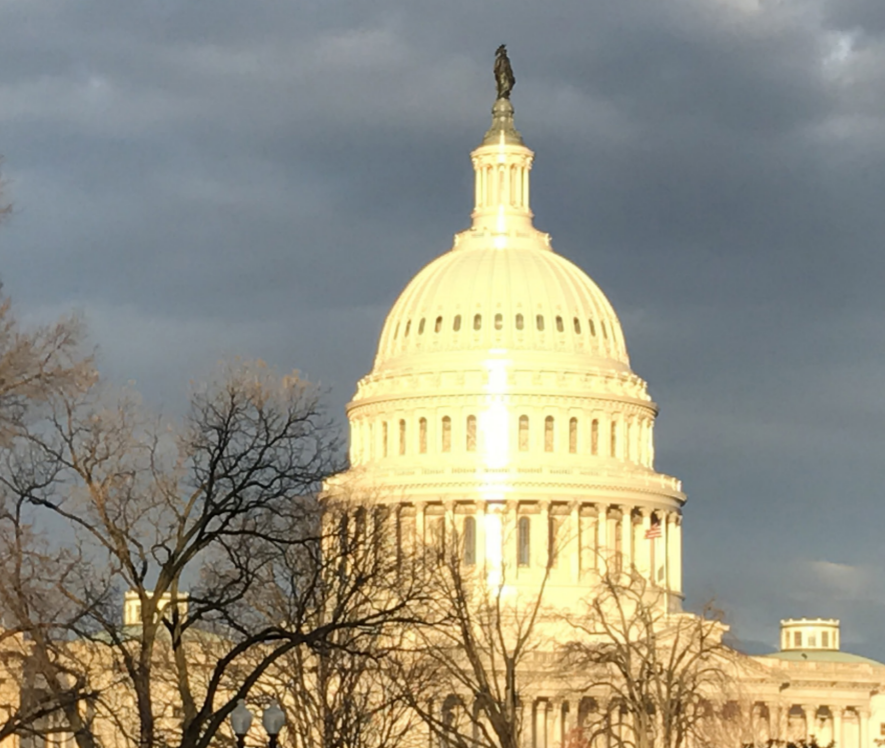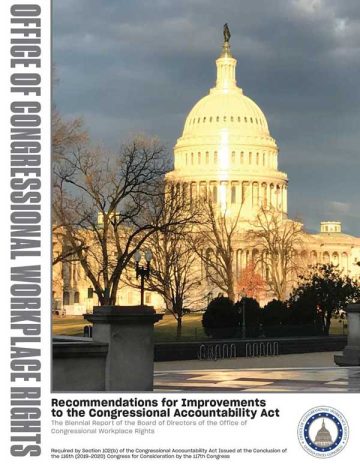STATEMENT FROM THE BOARD OF DIRECTORS OF THE OFFICE OF CONGRESSIONAL WORKPLACE RIGHTS TO THE 117TH CONGRESS
With its enactment of the Congressional Accountability Act (CAA) in 1995, Congress first applied to the legislative branch the same laws regarding workplace rights and the employment relationship as governed the executive branch and private sector, including those addressing discrimination, workplace safety and health, wages and hours, accessibility, and collective bargaining and labor management relations. Passage of the CAA in the opening days of the 104th Congress with nearly unanimous approval reflected a Congressional promise to the American public that it would hold itself accountable to the same federal workplace and accessibility standards as apply to private sector employers and executive branch agencies. This commitment is not meant to be static. Rather, the CAA provides for an ongoing, vigilant review of federal law to ensure that Congress continues to apply to itself—where appropriate—the labor, employment, health, and safety laws that it enacts. To further this goal, section 102(b) of the CAA tasks the Board of Directors of the Office of Congressional Workplace Rights (OCWR) to review federal legislation and regulations to ensure that workplace protections in the legislative branch are on par with those applicable to private sector and executive branch agencies. Accordingly, every Congress, the Board reports on:
whether or to what degree [provisions of Federal law (including regulations) relating to (A) the terms and conditions of employment (including hiring, promotion, demotion, termination, salary, wages, overtime compensation, benefits, work assignments or reassignments, grievance and disciplinary procedures, protection from discrimination in personnel actions, occupational health and safety, and family and medical and other leave) of employees; and (B) access to public services and accommodations]…are applicable or inapplicable to the legislative branch, and (2B) with respect to provisions inapplicable to the legislative branch, whether such provisions should be made applicable to the legislative branch.

